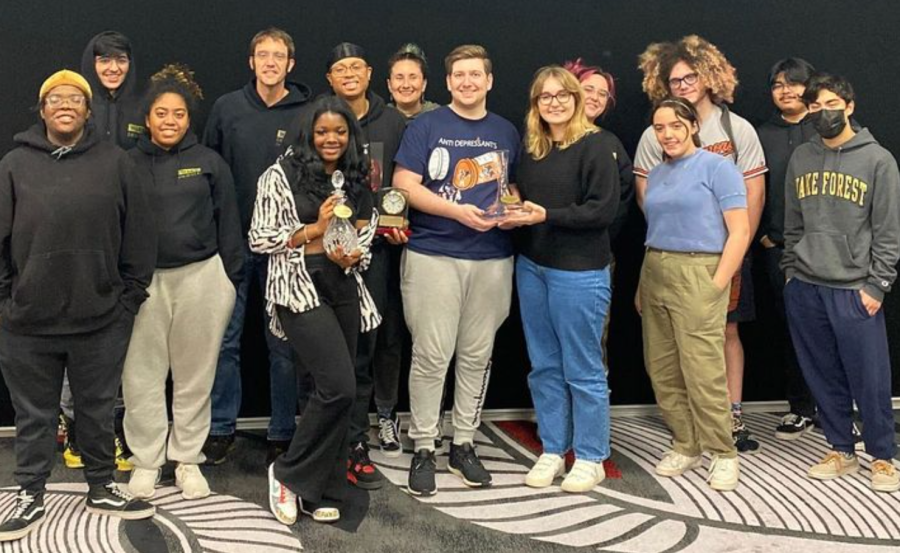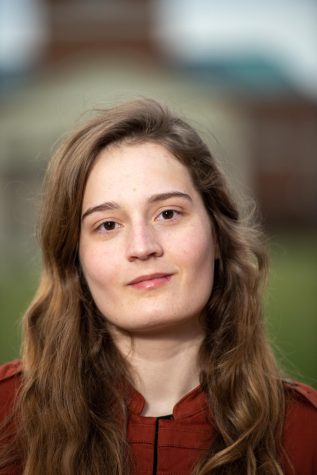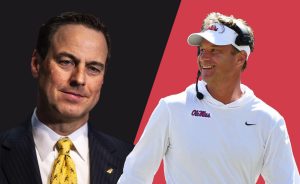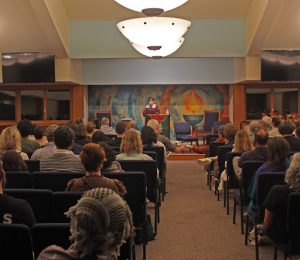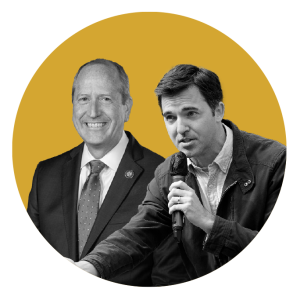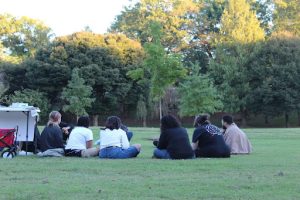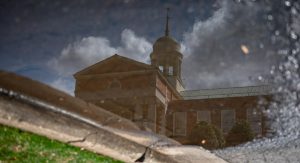Wake Forest Debate wins Gonzaga tournament
Wake Forest debaters won both team and individual recognition
Courtesy of Wake Forest Debate
The Wake Forest debate team poses after its success at the Gonzaga tournament.
November 9, 2022
Wake Forest Debate seniors Ari Davidson and Ana Bittner took first place at the national 2022 Jesuit Debates tournament at Gonzaga University after defeating the University of Michigan in a 3-0 decision in Spokane, Washington on Oct. 31.
Wake Forest debaters also received individual recognition. Out of 164 debaters, junior Iyana Trotman was the top overall speaker and junior Tajaih Robinson was the second overall speaker. Davidson and Bittner were voted fourth and eighth place speakers, respectively. Neither Trotman or Robinson returned the Old Gold & Black’s request for an interview.
Davidson and Bittner went undefeated during the tournament, beating debaters from top schools like Harvard, Georgetown and the University of Pennsylvania on their way to the final round.
This year’s policy debate resolution was whether the United States should grant legal rights to artificial intelligence, nature or nonhuman animal species. Individual teams could choose whether to keep their focus broad — such as arguing for giving rights to all of nature and challenging environmental exploitation — or narrow the resolution down to whatever degree they chose. Wake Forest is known for having a team that takes an especially broad number of styles and approaches, one of the things Bittner says explains the team’s many accomplishments.
“If we didn’t have such an amazing team full of so many different people, we probably wouldn’t be as successful,” Bittner said. “We don’t have a lot of asymmetries because everyone brings what makes them special to the table.”
Davidson and Bittner’s resolution discussed a specific indigenous wild rice grain called manoomin, which is harvested by the Anishinaabe people in the Great Lakes region of the United States and Canada. In their affirmative approach, the pair argued that failing to grant manoomin legal rights is a form of cultural genocide and discussed problems with environmental policies that don’t take Indigenous perspectives into account.
Over the course of the three-day tournament, Bittner and Davidson won all six of their preliminary debate rounds. At this stage, competitors argued for an affirmative approach to their own resolution in half their debates. In the other three debates, participants argued against their opponent’s resolution. If they can disprove the other team’s test case, they win the round.
After a perfect record in preliminary rounds, Bittner and Davidson advanced to elimination rounds. At one point, they even negated a version of their own affirmative case in the double octofinals, a round of sixteen matches between thirty-two remaining teams.
Bittner and Davidson have put years into preparing for this moment, beginning before they arrived at Wake Forest. Bittner began debating at age 15, and Davidson started in seventh grade. During her time at Wake Forest, Davidson has previously won speaker awards — which evaluates the quality of debater’s presentation independent of wins or losses — and has also advanced to elimination rounds in several national tournaments. Bittner recently won a district tournament last spring when partnered with Robinson.
However, this victory marks both of their first ever national tournament wins.
Of her mindset going into the tournament, Bittner said: “I just wanted to have fun. I knew we would compete pretty well, but I don’t really guess about these things. I just focus on one round at a time. My mantra is zero-zero after every debate, so that way I always focus on having fun with my best friend [Davidson], who I get to debate with.”
This tournament was not the first the pair has competed in together. The two were partners their sophomore year but have come back together for their senior year, a partnership both find rewarding.
When discussing what else contributed to their success, Bittner said: “Even the [Wake] teams that didn’t compete as far in the elimination debates came out to everyone’s preparation. We had freshmen competing in their third or fourth ever college debate helping us prepare every debate through the elimination rounds. That’s something that not a lot of teams do. The secret really is having that team support.”


